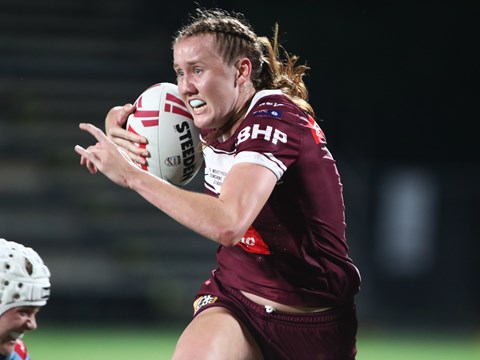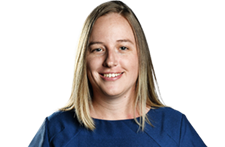
NRLW star Tamika Upton has a long-term vision of helping usher through the next crop of Indigenous female talent.
Upton was one of the best players in the women's game in 2020 in an encouraging sign for elite pathways officials as they look to help grow more female Indigenous representation at the highest level.
In 2021, seven of 40 players in the Jillaroos' train-on squad have an Indigenous background, including Upton, who wants to see those numbers climb.
Upton's Indigenous background may come as a surprise to some given she's yet to represent her culture in rugby league, but the Rockhampton junior is a proud Baradha woman.
The last time Upton represented an Indigenous side with a footy in her hand was in 2015, where she played touch football as a teenager alongside NRL premiership-winner Scott Prince.
This is a Rivalry that knows no boundaries
Since then, the 24-year-old's rise has had its ups and downs with injuries and other commitments impacting her ability to play in All Stars matches.
"I'm from the Baradha tribe, which is in Central Queensland," Upton told NRL.com.
"It's been a bit hard with the way things were back in the day, in that my family are still finding out things about our history culture, to this day.
"It's something that the elders help with back home. We're learning all the time."
Upton moved from Central Queensland to the Gold Coast this season to help progress her rugby league career after work commitments ruled her out of a Jillaroos debut in 2019.
Indigenous Round to highlight inequality to move forward
She recently joined Deadly Choices as an ambassador to help promote healthy lifestyles within Indigenous communities.
"I'm absolutely loving my role with Deadly Choices," Upton said.
"I've been a bit unfortunate with the timing of things over the past couple of years that I haven't been able to represent my culture through the All Stars.
"But my fingers are crossed I'm available for selection down the track, it's something I want to tick off my list.
"To represent my tribe would be amazing, especially in my role with Deadly Choices I want to help raise the profile of the women's game there.
"I can pretty much show young Indigenous girls that they can get there."
Upton also revealed it was Margie Grant, mother of Maroons hooker Harry Grant, who first coached her when she switched to rugby league with Yeppoon after dominating the touch football arena.
From Artie to GI to Latrell: Widders' part in Indigenous legacy
"They needed numbers and I was like 'yeah sure'," Upton said.
"Harry is a little bit younger so that was pretty funny. She still texts me before and after games.
"It's just cool to see people playing for their states or countries from Central Queensland."
